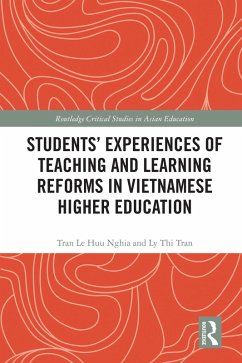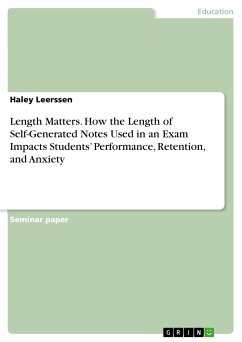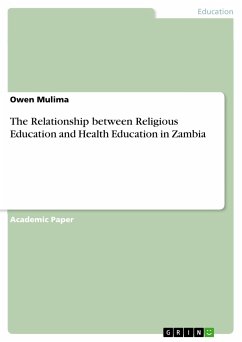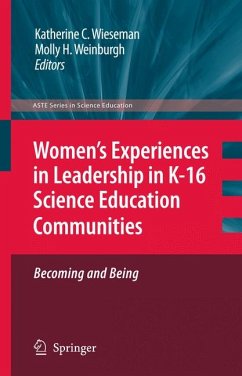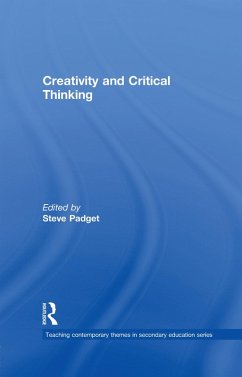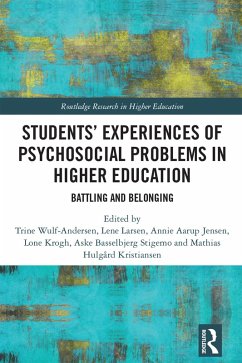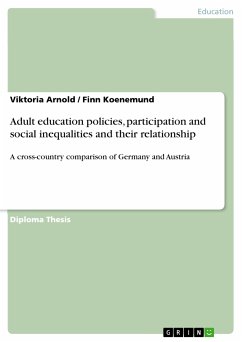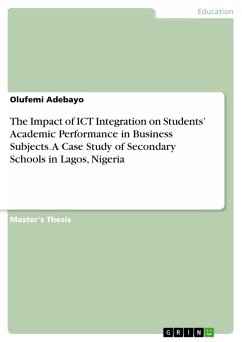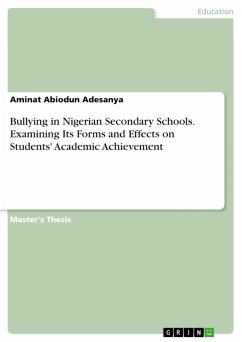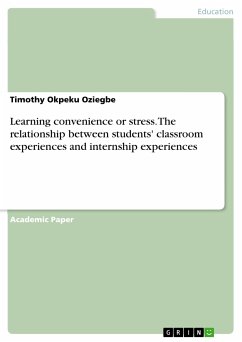
Learning convenience or stress. The relationship between students' classroom experiences and internship experiences (eBook, PDF)

PAYBACK Punkte
0 °P sammeln!
Academic Paper from the year 2023 in the subject Pedagogy - Pedagogic Psychology, , language: English, abstract: This paper examines learning convenience or stress and its relationship between students' classroom experience and internship experience. The factors influencing students' learning experience in the classroom, characteristics of students' internship experiences, and tips for internship sites were also examined. Linking schools to industry must take into account student learning experiences in the classroom and student internship program. Colleges and universities are encouraged to d...
Academic Paper from the year 2023 in the subject Pedagogy - Pedagogic Psychology, , language: English, abstract: This paper examines learning convenience or stress and its relationship between students' classroom experience and internship experience. The factors influencing students' learning experience in the classroom, characteristics of students' internship experiences, and tips for internship sites were also examined. Linking schools to industry must take into account student learning experiences in the classroom and student internship program. Colleges and universities are encouraged to develop their students' knowledge, skills, interest, and potential to follow industry trends and meet industry needs. This experience could make it easier for students to learn and develop their overall skills, both in school and in the workplace. In addition, schools could help students acquire core skills needed in the future and recognize the need for cross-cultural relationships. Schools could also establish internship programs to connect schools with businesses that could grow a new generation of talent that will become the mainstay of school talent development in the face of global competition.
Dieser Download kann aus rechtlichen Gründen nur mit Rechnungsadresse in A, B, BG, CY, CZ, D, DK, EW, E, FIN, F, GR, HR, H, IRL, I, LT, L, LR, M, NL, PL, P, R, S, SLO, SK ausgeliefert werden.





